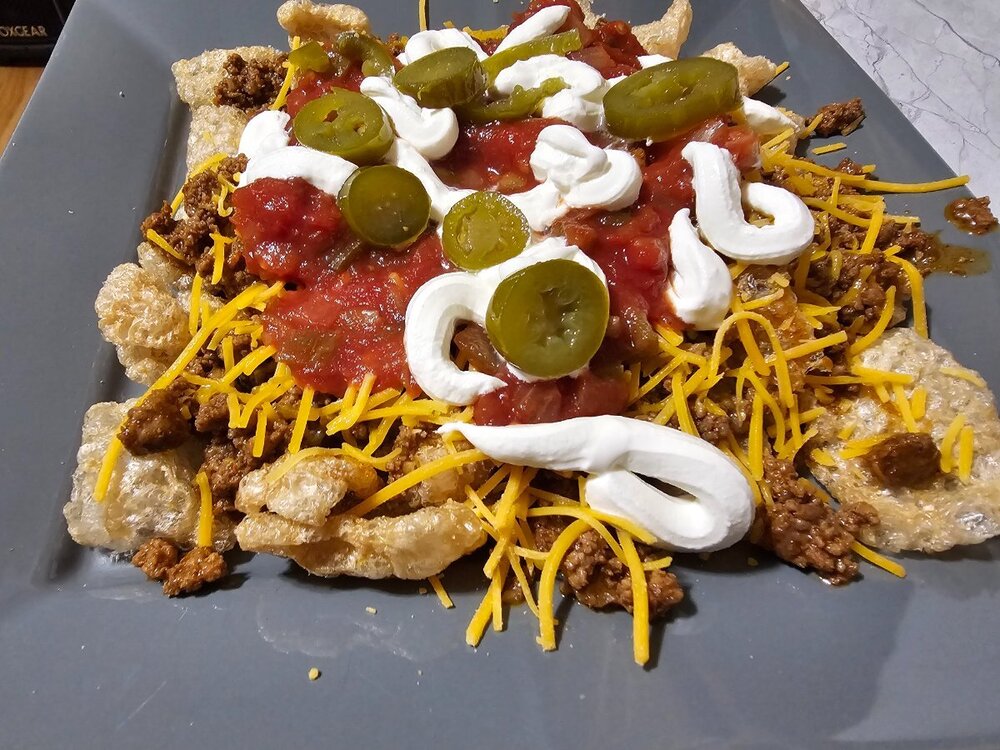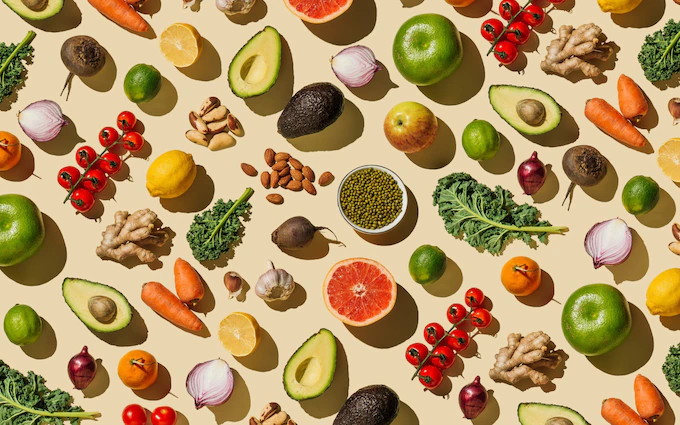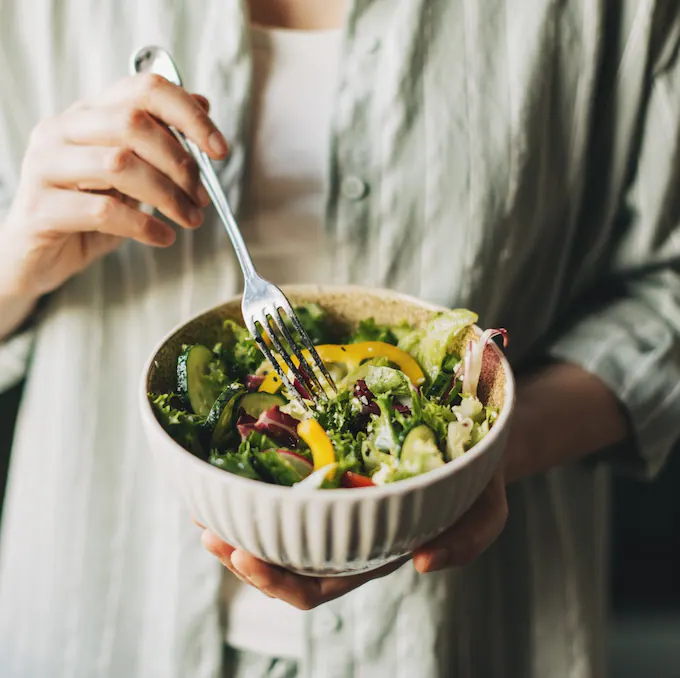The dangers of veganism
A vegan diet has been linked to stroke, depression and pregnancy complications. Here’s what you need to know
David Cox 8 September 2024 • 10:00am
There are currently an estimated 2.5 million vegans in the UK Credit: Getty
The vegan diet is often described in the context of its benefits for weight loss and heart health. Cult documentaries such as Netflix’s The Game Changers have helped push a narrative that going plant-based is not only best for the planet, but better for our own wellbeing.
There are currently an estimated 2.5 million vegans in the UK, a figure which has nearly doubled in the past 12 months alone. This has helped to greatly enrich vegan food companies, with the UK market for meat substitutes worth more than £800 million, making it the second largest in Europe, behind Germany.
Yet at the same time, accumulating studies are suggesting that the metabolic benefits of going vegan are accompanied by a plethora of health risks stemming from the diet’s inherent restrictions which involves avoiding all animal products including meat, fish, seafood, eggs, dairy, and honey. The emerging concerns range from a heightened risk of diseases relating to the skeletal and nervous systems, to conditions such as haemorrhagic stroke.
“We’re basically not designed to be vegans,” says Dr Geoff Mullan, a functional medicine practitioner. “There’s some big macronutrients and micronutrients missing if you’re just eating a vegan diet. You can get plenty of proteins on a vegan diet, but there is a concern that you’re not getting enough of the right type of protein. Plant-based proteins are not the same as animal-based proteins or dairy, and our body doesn’t process them in the same way.”
Anne Hathaway recalled that after eating a piece of salmon after several years as a vegan, 'my brain felt like a computer rebooting' Credit: Vianney Le Caer/Invision/AP
Even some of the diet’s biggest celebrity advocates have ultimately returned to an omnivorous life after tiring of the restrictive nature of being vegan, combined with some worrying health concerns. Miley Cyrus told Joe Rogan’s podcast: “I was vegan for a very long time, and I’ve had to introduce fish and omegas into my life because my brain wasn’t functioning properly. Now I’m so much sharper than I was and I think that I was, at one point, pretty malnutritioned.
Anne Hathaway also described that she “just didn’t feel good or healthy” while on a vegan diet and recalled that after eating a piece of salmon after several years as a vegan, “my brain felt like a computer rebooting”.
So why can going vegan lead to health concerns and what do nutritional scientists think?
The health risks
While dietary protein can be sourced from plants, plant proteins are not only 50-70 per cent less digestible than animal proteins, but according to the World Health Organisation, animal proteins are regarded as complete protein, meaning they have higher biological value.
One recent study examined the adequacy of a vegan diet in terms of macronutrients through surveying the nutritional intake of vegans across Europe, finding that vegans consumed the least total protein.
Clare Collins, a professor of nutrition and dietetics at the University of Newcastle in New South Wales, Australia, says that problems can arise when people end up starting a vegan or even a vegetarian diet as something of a fad, and thus fail to ensure that what they’re eating meets all their nutrient requirements.
“I think the main danger is whether you’re truly committed to that, or whether it’s just this week I’m a vegan, I’m going to do that for a few months,” she says.
A vegan diet can lead to deficiencies in nutrients such as calcium, iron and vitamin B12 Credit: Getty
One of the most well-known risks is vitamin B12 deficiency, something which has been linked to neurological problems and blood disorders. Vitamin B12 is found in foods such as meat, poultry and eggs. Other studies have suggested that inadequate vitamin B12 consumption may even raise the risk of cancers, with some epidemiologists finding that postmenopausal female patients with low vitamin B12 levels have a heightened risk of breast cancer. Reduced vitamin B12 levels have also been linked to risk of developing cancerous growths in the cervix and gastrointestinal tract.
While vitamin B12 supplementation is known as being imperative for vegans, Dr Mullan says that most of the vegans he sees in his practice tend to have lower than optimal vitamin B12 and iron levels as well as being deficient in another crucial nutrient, omega-3. Omega-3s are vital for brain health and function as they are concentrated in particularly high levels in brain cells.
“We do quite a lot of blood testing and when I see a blood panel I can always tell that it’s a vegan straight away because the lipid [blood fat] profiles are normally really good, but vitamin B12 and iron levels are always in their boots,” says Dr Mullan. “And their omega-3s are always really bad.”
Dr Mullan explains this is because omega-3s exist in two forms. We typically get so-called long-chain omega-3s such as EPA and DHA from eating fatty fish or omega-3 enriched eggs. However, the omega-3s found in plant-only sources such as chia and flax seeds are shorter-chain omega-3s, which we struggle to process as effectively.
“At best, only somewhere between 5 and 10 per cent of short-chain omega-3s can get converted to a form we can actually use,” says Dr Mullan.
It’s bad for your bones
While consuming calcium-rich vegetables such as kale and broccoli can protect bones, two of the biggest population studies that have monitored vegans over time – one which followed Seventh Day Adventists in the United States and Canada, and the EPIC-Oxford study which tracked the health of around 65,000 meat-eaters, vegetarians and vegans across the UK – have indicated that many vegans don’t actually meet their calcium requirements. As a result, the risk of hip fracture, leg fractures and general bone fractures, has been found to be higher in vegans compared with meat eaters.
Much of this is thought to be because calcium is less easily absorbed from plant foods compared to dairy products, while various studies have also shown that vegans consume insufficient vitamin D which exacerbates calcium shortages.
“Long-term observational studies of vegans find adverse effects on bone density that is probably caused by very low calcium and marginally adequate protein intakes,” says Thomas Sanders, an honorary professor of nutritional sciences at King’s College London. “Although vegan diets may have favourable effects on health in middle-age such as a lower risk of cardiovascular disease and Type 2 diabetes, this is not the case in older vegans who seem more likely to suffer from muscle loss, low bone density and neurological disorders which have a significant impact on the quality of life.”
Greater stroke risk
One particularly alarming finding from the EPIC-Oxford study was that vegetarians and vegans had a 20 per cent greater risk of stroke compared with meat eaters.
This finding has been corroborated by several studies in Japan, suggesting that individuals with a very low intake of animal products have an increased risk of stroke and that key animal-derived nutrients such as vitamin B12, essential amino acids and long chain omega-3 polyunsaturated fatty acids have a protective effect against stroke.
Pregnancy complications
Earlier this year a small study conducted by researchers in Denmark suggested that vegan mothers may have a poorer prenatal nutritional status, which can lead to worse outcomes for the foetus and baby.
In particular, the mothers were found to be at a greater risk of preeclampsia, a pregnancy complication that causes dangerously high blood pressure levels, while their babies had a lower birth weight compared to those of omnivores.
Dr Duane Mellor, a registered dietitian, points out that while the study was small and only monitored 18 vegans, the challenges of ensuring that a vegan diet is nutritionally complete can have health consequences. “There can be risks of lower intakes of iron, iodine and vitamins B12 and D which can affect the health of both the mother, along with the development of the baby,” says Dr Mellor.
Depression and mental health
A general concern with restrictive diets is that they can lead to disordered eating habits, and be reflective of a condition called orthorexia nervosa, which is defined as a fixation on health-conscious eating behaviour. This involves obsessive food decisions, self-imposed anxiety, self-punishment, and ritual activities surrounding food preparations. Research has found that both vegetarians and vegans, particularly women, are more prone to orthorexia nervosa.
Some vegans who have subsequently switched back to an omnivorous diet have complained of low energy levels while following a vegan diet. Like Cyrus, her partner at the time, Liam Hemsworth described feeling “low and lethargic” while on the diet.
One scientific review from researchers at King’s College London and the University of Nicosia in Cyprus found 11 studies which suggested that vegetarian or vegan diets are linked to higher rates of depression, potentially due to deficiencies in omega-3 and vitamin B12. Reduced concentrations of omega-3 fatty acids in the brain can cause significant changes in brain function, including changes in neuron size, learning and memory, while both omega-3 and vitamin B12 are involved in the transmission of key brain chemicals.
Both Miley Cyrus and Liam Hemsworth, her partner at the time, ditched their vegan lifestyles for health reasons Credit: Ian West/PA Wire
“There’s also iodine which is essential for making thyroid hormones, which are essential for energy and mental health,” says Dr Mullan. “Iodine is one of the most common deficiencies in vegans because it’s very difficult to get it from plant sources, unless you’re eating lots of seaweed.”
The risks for kids
Generation Z are particularly at the forefront of the shift to a plant-based diet. Back in 2021, 8 percent of British children were identifying as vegan and 13 per cent as vegetarian, and now some surveys have suggested that more than half of Gen Zers may be choosing to follow a meat-free diet by 2025.
However, there are particular concerns about the consequences of a lack of animal protein in children, such as inhibited growth, lower bone mineral content and density, and poorer developmental outcomes. A review from scientists at UCL Great Ormond Street Institute of Child Health found that nearly a third of vegetarian and vegan children do not take vitamin B12 supplements, resulting in deficiencies combined with lower iron stores, greater risk of vitamin D deficiency and inadequate iodine intake.
The issues with vegan meats
Another issue with the shift towards plant-based diets is that many shop-bought plant-based meat or dairy alternatives are ultra-processed foods. Richard Hoffman, a researcher at the University of Hertfordshire, says that rather than being made with ingredients such as lentils, plant-based meats tend to be manufactured with highly refined chemicals, combined with ingredients such as emulsifiers and stabilisers.
“Plant-based meats really should be called fake meats, because they’re designed to mimic meat without actually containing anything resembling meat,” he says. “All these companies are doing their best to get the product to be indistinguishable from meat, but to do that, they have to use all these highly refined ingredients.”
You don’t need to go full carnivore
Ultimately, Dr Mullan says that the best approach is to combine the main benefits of a vegan diet (ie the high intake of fruits and vegetables) with a certain amount of protein through meat, fish and eggs.
“I always say, the majority of your diet should be like a vegan diet with that higher vegetable intake, but adding in eggs, fish and occasionally red meat,” he says.
ARTICLE SOURCE: https://www.telegraph.co.uk/health-fitness/diet/nutrition/dangers-of-veganism/










